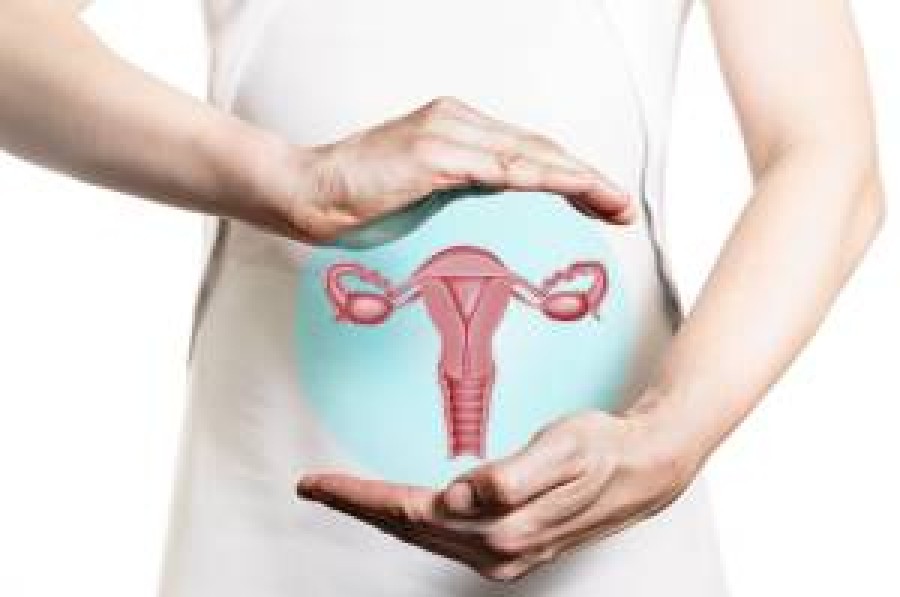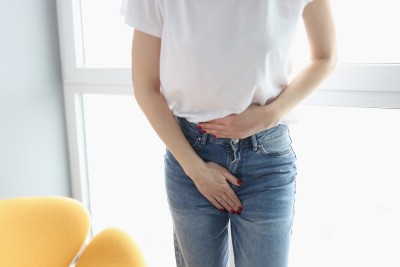Free shipping for orders over 39.00€
Everything about vaginal dryness and how to deal with it

When it comes to female physiology, it is unfortunate that, even today, many medical conditions are considered "taboo", and women are reluctant to openly discuss them. Having that said, vaginal dryness is a condition that can cause a woman discomfort during sex, inability to reach orgasm, and ultimately unwillingness to have sex. Apart from these, however, vaginal dryness may underlie other gynecological problems that need therapeutic treatment.
Vaginal dryness is a common problem that women face at some point in their lives, with a higher chance of occurring during menopause when estrogen levels in the female body are dramatically reduced. In fact, 40-60% of women suffer from vaginal dryness because of menopause.
Estrogens are the hormones that are accountable for lubricating the female vagina and protecting it from vaginal and urinary tract infections. That is why the problem can also occur in women who have just given birth to a baby or who are breastfeeding, as during breastfeeding estrogen levels decrease.
In addition, medications and several vaginal infections can cause vaginal dryness to occur. For example, long-term use of contraceptive pills or antidepressants dries the mucous membranes of the vagina and negatively affects healthy vaginal secretions.
Vaginitis, that is, an inflammation of the vagina can also be accountable for vaginal dryness. Although colonies of germs live in the female vagina, which is necessary for the normal functioning of the flora of the vagina, when they multiply to pathological levels, they can cause fungal vaginitis, which is responsible for vaginal dryness, but also for other disturbing symptoms. The same effects are caused by bacterial vaginosis, caused when the vagina loses its natural defenses and becomes vulnerable to foreign microorganisms.
Finally, we should also point out a mistake made by many women unknowingly, which usually brings the opposite, from the expected, results. It is about the use of common soaps to clean the genital area, which nevertheless disrupts the natural balance of the vagina, destroys the pH with their powerful antimicrobial components, and leads to vaginitis. Repeated intravaginal washes cause similar problems, which disrupt the balance of the inner "self-cleaning" system, with long-term negative consequences for the female vagina.
Symptoms
Symptoms that accompany vaginal dryness are:
✔️Burning sensation and pain, especially during sexual intercourse.
✔️Itching and burning in the sensitive area.
✔️Frequent urination.
✔️Recurrent urinary tract infections.
✔️Slight bleeding.

How to treat vaginal dryness
Vaginal dryness can affect the woman for a long time, so it is advisable, before seeking appropriate treatment, to have a complete gynecological check-up, a blood test, which will check the levels of hormones that regulate the smooth functioning of the reproductive system, and a vaginal fluid culture, to clarify whether the problem is due to an infection.
Depending on the condition that causes vaginal dryness, with the help of your doctor, you will seek the appropriate therapeutic approaches.
If the problem has a hormonal origin, the doctor will suggest alternative forms of treatment, which may include a classic hormone replacement therapy, local use of special formulations with hormones or without, etc. In any case, personalized treatment will relieve the patient and cure the symptoms.
When dryness comes from infection and depending on the severity of the condition, an oral or topical medication can restore the pH balance of the vagina.
In other cases, the problem can simply be treated easily, with the use of special lubricants for the vagina, which does not need a doctor's prescription and can effectively restore the moisture of the vagina.
There are, nowadays, several formulations with natural ingredients, which contribute safely and effectively to the hydration and lubrication of the female vagina. Intravaginal creams and suppositories based on hyaluronic acid or sodium hyaluronate can contribute to the hydration and healing of the mucous membranes of the vagina.

It is advisable not to use vaginal douches thoughtlessly, as some products, contrary to what is believed, affect the vagina pH.
It is recommended to choose cotton underwear than nylon or synthetic since the latter increase the area's temperature and enhances the feeling of burning and itching, which bother the woman.
Body hydration is considered essential for the vagina's balance, which is why adequate fluid intake is needed.
In addition, your nutrition can help to cope with the problem. Choose foods rich in omega 3 fatty acids, which have a rich anti-inflammatory effect and at the same time help moisturize the vagina. Furthermore, choose foods rich in isoflavones, which mimic the action of estrogen (legumes, nuts, soy derivatives, etc.)
You can also include in your daily routine nutritional supplements with omega 3 fatty acids and isoflavones. Don't forget though, supplements are not a substitute for balanced nutrition!






